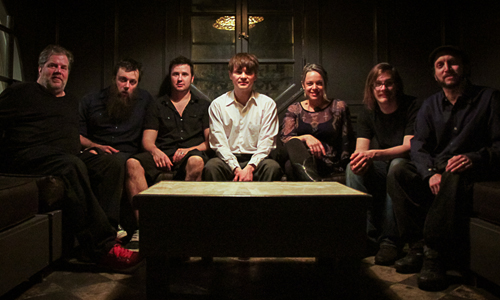Yet another press release on evangelicals who have found a home that is sweet and located in Rome. And once again, the great appeal is authority (papal, infallible, audacious?):
What I came to realize is that little progress will be made on the major issues (or many secondary issues) of theology until one settles the issue of religious authority. That single concern is related to numerous key facets of the Christian faith, the most impactful of which were the canon of Scripture and its orthodox interpretation.
The canon of Scripture (the books included in the Bible) is a huge issue for anyone who considers the Bible to be the Word of God and the authority for one’s faith. If one thinks the early Church went astray somehow, it becomes a very difficult problem because the biblical collection itself was not settled until centuries after the apostles died. If the Church was in error by then, how can the “Bible-Only Christian” be sure he really has the inspired Word of God? And if the Church was kept from error while it determined the canon, why was it not likewise kept from error during the councils and creeds it produced at the same time? As I looked at the major alternate theories of canonization, I discovered the historical truth that the Church is ultimately the standard.
This was also the case with doctrine. It is well known that there is rampant disagreement among the various sects, denominations, and cults of Christianity—but where is the line drawn? Christians often speak of “orthodoxy,” “heresy,” “essentials,” and “fundamentals”—but by what authority are these words defined, and doctrines labelled? For the Christian who denies that the Church is the standard, there seemed to be no non-circular means of doing so.
I’ve asked before and no one answered. So I’ll ask again. With all that authority, how do you explain the bad stuff? What about Marquette University? What are the bishops doing? Pope Francis? The converts?
Working in my Marquette office one afternoon in the spring of 2010, I heard unusual sounds coming from the normally quiet lawns outside my window. I was surprised to see a modest assembly of students and professors preparing to march in protest. Against what? Minutes later, an email arrived informing me that the university’s then-president, Robert Wild, S.J., had voided a contract extended to Jodi O’Brien to join us as Dean of the College of Arts and Sciences. Though the contract had already been signed, Fr. Wild—perhaps under external pressure—decided that O’Brien, a partnered lesbian whose research included queer studies, was not an appropriate choice to represent our mission and identity.
Although an ordinary person with a passing knowledge of the moral teachings of the Catholic Church would think such a decision obvious, the department chairs in the college soon gathered and voted almost unanimously to censure Wild’s decision. The press, meanwhile, demanded an explanation. On the defensive, the university allegedly paid a considerable sum in order to break the contract. Officials were soon exercising themselves to demonstrate their concern for equitable treatment of gays and lesbians. The university would initiate projects, courses, conferences, and the like to explore issues of sex and gender! The clear implication was that change would come, though slowly. Marquette would get with the sexual-liberation program so that something like the O’Brien affair would never happen again.
Since 2010, the campaign for sexual diversity at Marquette has advanced rapidly. Last year, the university announced the expansion of the former Gender and Sexuality Resource Center (established in the wake of the O’Brien dustup) into two new initiatives: a Center for Gender and Sexualities Studies and an LGBTQ Resource Center. How much funding has been increased has not been disclosed. We also now have an Office of Institutional Diversity and Inclusion, which offers faculty and staff awards for excellence in, yes, “diversity and inclusion.” Again, how much this will cost hasn’t been revealed. We do know, however, that funds have been promised to support the development of new courses that advance the cause. A faculty fellows program in diversity is also in the works.
The whole article is worth reading, but this paragraph is particularly telling:
For the last two generations, American Catholic theology departments have been at the forefront of a campaign of dissent against Catholic sexual morality. This campaign has often been led by Jesuits and Jesuit universities. Unlike attempts to attract more minority students, or programs to empower students from disadvantaged backgrounds—efforts in full accord with Catholic social teaching—this campaign of dissent has sometimes been underhanded, even dishonest. It has also been ruthless, working hard to suppress and punish any who speak up for the Church’s teaching. The way Marquette has adopted and promoted the mishmash of LGBTQ ideology over the last few years is consistent with that tradition of dissent.
So why don’t the converts ever include these developments in their touting of Rome’s authority and certainty? Are they unaware?
Whatever the reason, the Marquette situation may explain Rachel Lu’s counsel (which doesn’t say much about the hierarchy that is supposed to keep everything neat and orthodox):
In that spirit, try not to pay too much attention to Church politics. Catholic politics is, well, politics. Unless your profession requires it, you probably don’t need to obsess about it, and there are much more edifying ways to immerse yourself in the faith. But whatever you do, don’t trust journalists to educate you about Catholicism.

